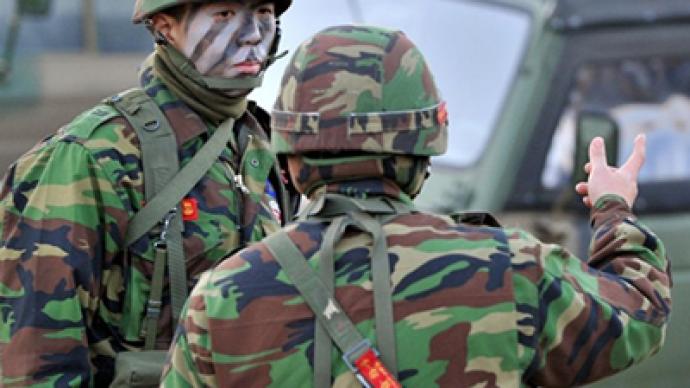Korean affairs expert Leonid Petrov says American efforts to keep North Korea on edge are getting dangerously close to sparking a conflict.
“It has been the fourth military exercise in the last eight months," Petrov pointed out."I believe the US is eager to make sure that the South Koreans, their main military allies in this region along with Japan, are well-trained, well-prepared. And that North Korea is weakened, paranoid, and intimidated. If South Korea and the United States start military exercises south of the 38th parallel or the northern limit line, their actions can easily be interpreted by North Koreans as a violation of armistice agreement [sic].”His comments came as North Korea's parliamentary chairman Choe Tae-Bok was expected to arrive in China for diplomatic talks.The official reason for the visit has not been announced, but it comes after Beijing called for an emergency meeting of the six nations involved in North Korea disarmament negotiations.Earlier, South Korea said it was not interested in formally resuming talks.Tensions between the neighbors on the Korean Peninsula have been stoked by the US and South Korea’s four-day joint military exercises in the Yellow Sea, near the disputed maritime border.Pyongyang has reportedly put its surface-to-surface missiles on alert, days after firing artillery on an island belonging to South Korea, killing four people. The attack, North Korea claims, was provoked.
“It has been a long-standing goal of US foreign policy to maintain considerable military pressure on North Korea”, noted writer and foreign policy analyst Stephen Gowans from Ottawa, saying that “the latest movement of the US aircraft carrier George Washington in the area is certainly intended to continue to escalate that military tension”.The tension between South and North Korea was raised over disputed areas, explained Gowans, because in 1953, after the Korean War, the U.S. unilaterally drew a sea border so that part of the area that fell to South Korea, actually belonged to North Korea, according to international law.
Professor Ruediger Frank of Vienna University says the current policy of the South Korean president is a dangerous approach with a volatile state like North Korea.“Lee Myung-bak finds himself between a rock and a hard place. On one hand, if he does nothing, he will lose credibility at home and abroad. If he overreacts, he risks a major confrontation and maybe disastrous consequences for his own people. After the sinking of the Choenan [South Korean navy ship] in March, however, it seems he doesn’t feel like sitting still this time. He’s walking a very tight rope between showing force and actually confrontation,” Frank said.


